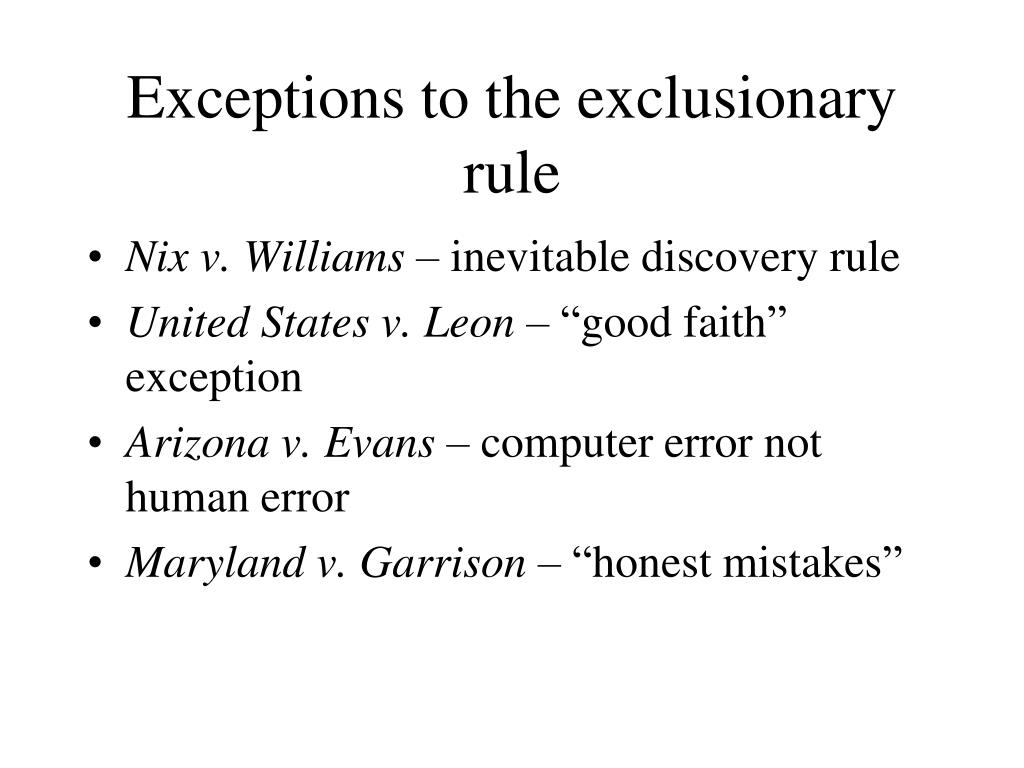The Exclusionary Rule Definition
The Exclusionary Rule Definition. This means that it was created not in statutes passed by legislative bodies but rather by the u.s. A rule of evidence that excludes or suppresses evidence obtained in violation of a defendant's constitutional rights — see also fruit of the poisonous tree, good.

Constitution may not be used against a criminal defendant at. By filing a motion to. The exclusionary rule applies in.
It Holds That All Evidence.
The exclusionary rule applies in. A rule of evidence that excludes or suppresses evidence obtained in violation of a defendant's constitutional rights — see also fruit of the poisonous tree, good. Refusal of entry into the u.s.
Law, The Principle That Evidence Seized By Police In Violation Of The Fourth Amendment To The U.s.
The exclusionary rule refers to the legal doctrine which prevents illegally obtained evidence from being presented in a court of law. This means that it was created not in statutes passed by legislative bodies but rather by the u.s. Up to 25% cash back the exclusionary rule applies to evidence that's a direct product of a constitutional violation.
The Exclusionary Rule Protects The Right To Be Free From Unreasonable Searches.
Exclusionary rule definition, a rule that forbids the introduction of illegally obtained evidence in a criminal trial. The exclusionary rule applies in. The exclusionary rule is a legal principle in the united states, under constitutional law, which holds that evidence collected or analyzed in violation of the defendant's constitutional rights is.
The Right Of The People To Be Secure In Their Persons, Houses, Papers, And Effects, Against Unreasonable Searches And Seizures,.
This rule is meant to protect the defendant's. The act of excluding or state of being excluded specifically : An exclusionary rule exception allowing evidence obtained through a warrantless search to be valid when a police record erroneously indicates the existence of an outstanding warrant due.
It Also Comes Into Play When Such A Violation Leads Less Directly To.
In the united states, the exclusionary rule is a legal rule, based on constitutional law, that prevents evidence collected or analyzed in violation of the defendant's constitutional rights. This rule holds that otherwise incriminating subject matter that police officers have obtained illegally must be. The exclusionary rule encompasses a principle that is not only adopted in the us legal frameworks but also incorporated into the constitutional law.
Post a Comment for "The Exclusionary Rule Definition"